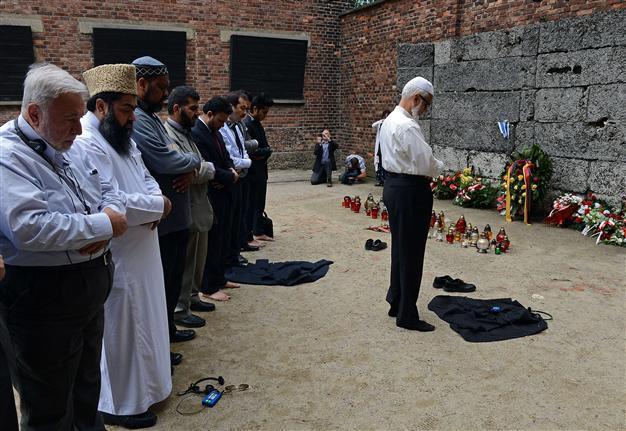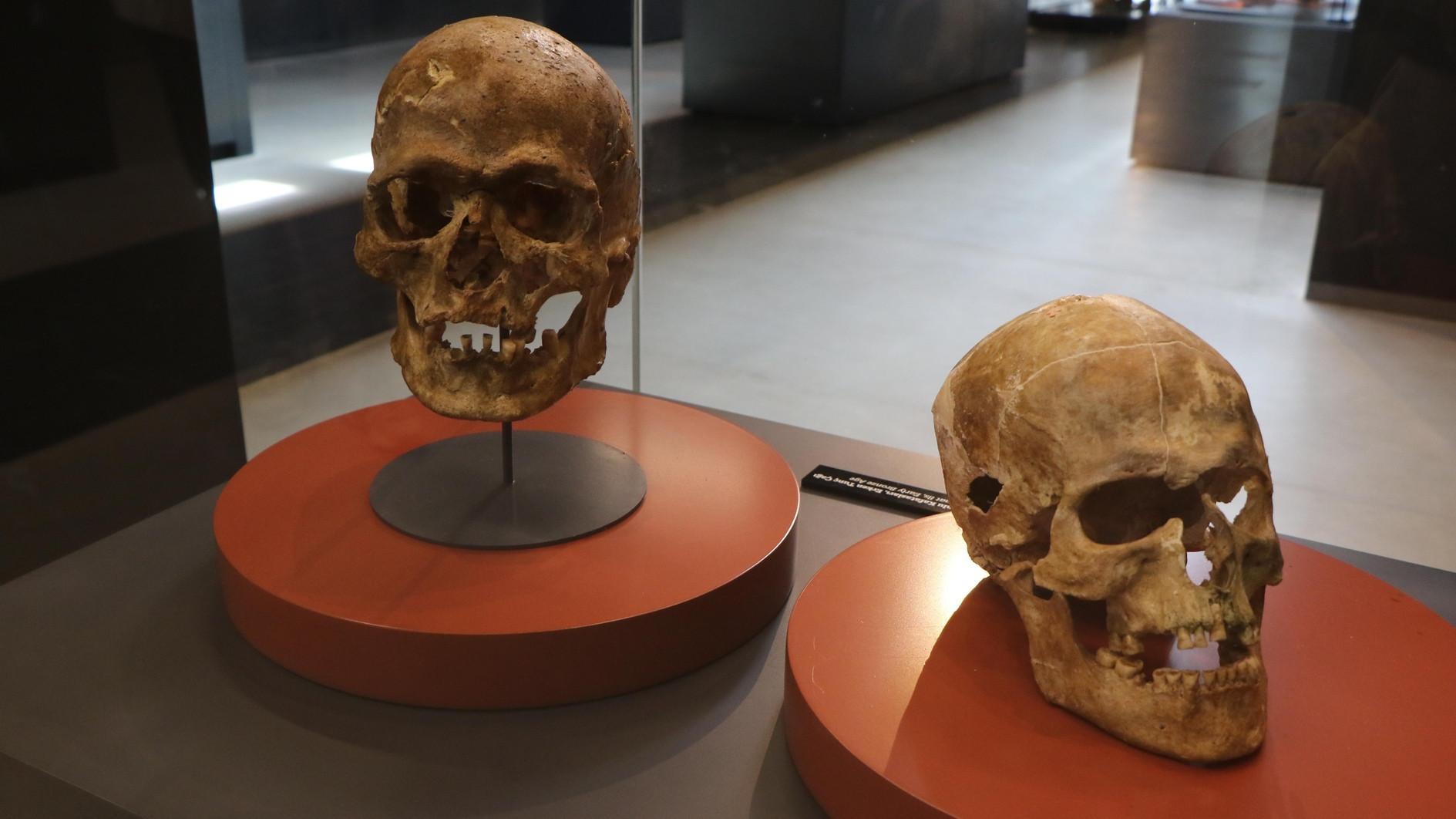Muslim religious leaders deliver emotional prayer at Auschwitz for Holocaust dead
OSWIECIM, Poland - Agence France-Presse

Muslim religious leaders from across the globe pray in front of so-called death wall at the Nazi death camp Auschwitz-Birkenau as part of an anti-genocide programme on May 22. AFP photo
Muslim religious leaders from across the globe knelt in solemn prayer for Holocaust dead at Auschwitz on May 22, before the notorious Wall of Death at the former Nazi German death camp in southern Poland.Thousands of Auschwitz prisoners perished at the wall, grey and still riddled with bullet holes. Adorned with flowers, it is a stone's throw from the infamous wrought iron "Arbeit macht frei" (Work makes you free) gate at the camp's entrance.
Imams from Bosnia, India, Indonesia, Jordan, Palestine, Saudi Arabia, Turkey and the United States offered traditional Muslim "salat" prayers.
The emotional visit was part of a Holocaust awareness and anti-genocide programme organised in part by the US State Department's Office of International Religious Freedom. Of the six million Jews killed by the Nazis during World War II, a million were murdered at Auschwitz-Birkenau, mostly in its notorious gas chambers, along with tens of thousands of others including Poles, Roma and Soviet prisoners of war.
Operated by the Nazis from 1940 until it was liberated by the Soviet Red Army on January 27, 1945, Auschwitz was part of a vast and brutal network of death and concentration camps across Europe set up as part of Adolf Hitler's "Final Solution" of genocide against an estimated 10 million European Jews.
Once Europe's Jewish heartland, Poland saw 90 percent of its 3.3 million pre-war Jews wiped out under Nazi German occupation between 1939-45.
Some of the imams wept at an emotional meeting May 21 with Jewish Holocaust survivors and their Polish Catholic saviours who told stories of their war-time sacrifice and survival at Warsaw's Nozyk Synagogue.
Earlier May 22, the group visited the Polish capital's new Museum of the History of Polish Jews, in the heart of city's pre-war Jewish community which became the infamous Warsaw ghetto under the Nazis.
The sprawling venue highlights nearly a millennium of Jewish life in Poland obliterated by the Holocaust. A soaring rupture opening on to undulating walls marks its facade, an allusion to Exodus and the parting of the Red Sea, through which Moses led the Jews fleeing slavery in Egypt to freedom, a narrative shared by the Torah, the Bible and the Quran.
















